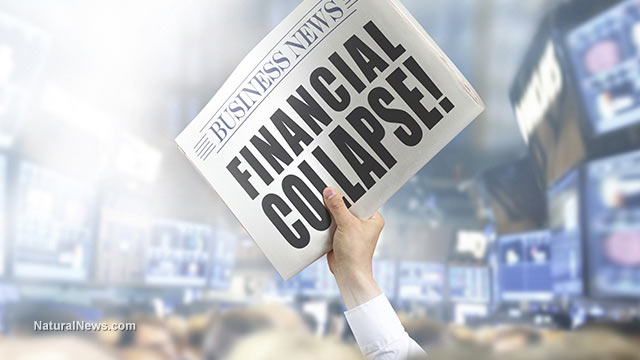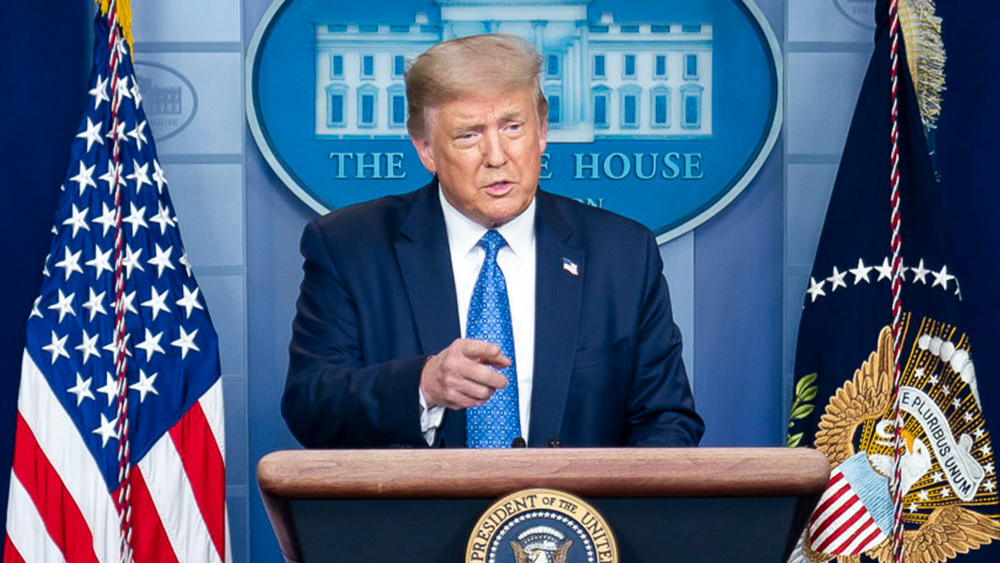Shareholders file class action suit against Silicon Valley Bank over alleged securities fraud
03/14/2023 / By Arsenio Toledo

The recently collapsed Silicon Valley Bank (SVB) is now facing a lawsuit filed by its shareholders, who are alleging that the bank is in violation of federal securities laws.
The class action suit of shareholders led by Chandra Vanipenta is directed against SVB Financial Group, the bank’s parent company, and its Chief Executive Officer Greg Becker and Chief Financial Officer Daniel Beck. It was filed in a federal court in San Jose, California. (Related: Silicon Valley Bank has now collapsed, and 95% of deposits were uninsured.)
The plaintiffs claim SVB failed to properly disclose to its shareholders the risks of the Federal Reserve raising interest rates. They noted that none of these risk disclosures were present in the multiple quarterly reports SVB Financial Group filed over the last two years, when the Fed kept raising interest rates.
They claim the bank should have warned investors that “it would be worse off than banks that did not cater to tech startups and venture capital-backed companies” in the current high interest rate environment.
The current Fed interest rate is 4.57 percent, and around $117 billion of SVB’s mortgage-backed securities were yielding less than half that at only between 1.56 to 1.66 percent.
Vanipenta and the other plaintiffs also claimed SVB should have warned them that the bank “was particularly susceptible to a bank run.”
The filing also accused Becker and Beck of attempting to deceive investors or acting “with reckless disregard for the truth when they failed to ascertain and disclose the true facts in the statements made by them or other personnel of the company to members of the investing public.”
The lawsuit is seeking an unspecified amount in damages for SVB investors between June 16, 2021 and March 10, 2023.
The class action suit was also filed on the same day that the Department of the Treasury, the Fed and the Federal Deposit Insurance Corporation issued a joint statement that SVB’s deposit holders would be fully compensated for their assets at no cost to taxpayers, even if their deposits are well above the $250,000 insurance limit set by the government. However, under the government’s plan, “shareholders and certain unsecured debt holders” will not be protected.
Class action suit likely to be first of many lawsuits over SVB’s sudden demise
This is likely the first of many lawsuits SVB and its former executives are going to face over the overnight collapse of one of the tech world’s main lenders, which federal regulators seized on Friday, March 10, following a surge of deposit withdrawals.
SVB completely caught the financial world off-guard when, two days before its seizure, it disclosed a $1.8 billion after-tax loss from investment sales. A day later, right around the same time the company announced a plan to raise new capital to meet redemption requests, SVB’s stock plunged by 60 percent and its bonds posted record declines in value. Becker held a conference call with bank clients, including venture capital investors, urging them to “stay calm” in a bid to avoid a bank run.
At the time of its collapse, SVB had an estimated $209 billion in assets and $175.4 billion in deposits, making its closure the largest American bank failure since the Great Recession of 2008.
The bank’s collapse has also sparked fears among other lenders that cater primarily to wealthy clients, including venture capital-backed corporations and tech industry startups, as well as large regional banks.
Learn more about Silicon Valley Bank’s catastrophic collapse at MarketCrash.news.
Watch this episode of the “Health Ranger Report” as Mike Adams, the Health Ranger, and financial expert John Perez, discuss the collapse of Silicon Valley Bank.
This video is from the Health Ranger Report channel on Brighteon.com.
More related stories:
Big banks starting to collapse as financial experts warn more fallout is coming.
Sources include:
Submit a correction >>
Tagged Under:
bank collapse, banking, Bubble, chaos, conspiracy, corruption, debt bomb, debt collapse, deception, finance riot, financial crash, fraud, investors, lawsuit, market crash, money supply, risk, securities, securities fraud, Silicon Valley Bank, traitors
This article may contain statements that reflect the opinion of the author
RECENT NEWS & ARTICLES
COPYRIGHT © 2017 RISK NEWS


















